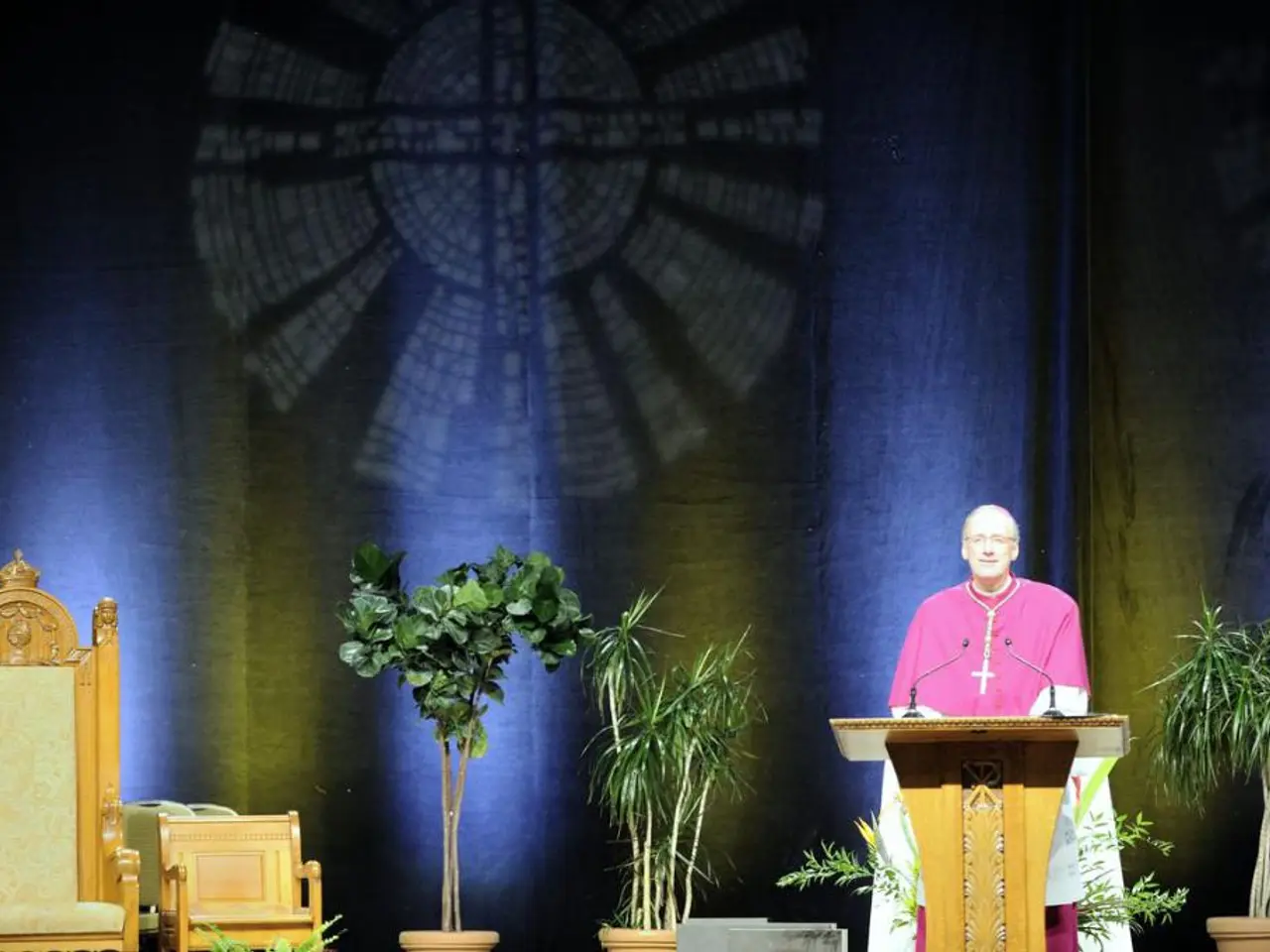Earth's Affectionate Lovers Embrace a Movement Celebrating Planetary Romance, Known as Ecosexuality
The ecosexuality movement, a radical and interdisciplinary approach that connects sexuality, ecology, and environmental activism, has gained momentum in recent years. This movement, which traces its roots back to early 21st-century queer and eco-activist collaborations, frames the Earth as a lover rather than an object or resource.
At the heart of ecosexuality is a deep, erotic, and relational love for the Earth. Unlike traditional environmental movements, which often focus on policy, conservation, or technological solutions, ecosexuality centres erotic vitality and relationality as tools for political and ecological change.
The ecosexuality movement has broadened climate activism by challenging anthropocentrism and capitalist-exploitative paradigms of nature. It expands the language and practice of environmentalism to include joy, pleasure, and love as motivational forces for ecological stewardship. By embracing intimacy and erotic connection with nature, ecosexuality aims to cultivate care for the environment through embodied, affective relationships.
The 2021 Ecosex Symposium, held at Performance Space New York, was a testament to this movement's growth. The event featured speakers such as visual artist Courtney Desiree Morris and author Kate Bornstein, and showcased farmers and queer food co-op representatives promoting safe sex and access to fresh, organic food at the Sidewalk Ecosex Clinic.
Protestors at Pride parades, dressed in colorful outfits and covered in biodegradable glitter, stormed the streets with placards reading COMPOSTING IS SO HOT and THE EARTH IS OUR LOVER. This demonstrates the movement's impact on climate activism, fostering queer and marginalized identities' visibility within environmental activism and addressing intersectional social justice concerns alongside environmental ones.
While ecosexuality is often derived from its participatory cultural practices and queer ecofeminist theory rather than a linear historical narrative, it has evolved into a global movement, encompassing academia, sexuality, and environmental activism. The movement's holistic approach to climate justice, one rooted in creating new frameworks and uplifting marginalized communities, is a refreshing departure from traditional environmental movements.
Notable works such as "Goodbye Gauley Mountain", a documentary produced by Annie Sprinkle and Beth Stephens in 2013, and the book "Assuming The Ecosexual Position", coauthored by the same duo, have furthered the movement's reach. The movement's warm reception in New York affirmed the duo's plans to take the movement out of its longtime base of San Francisco.
As ecosexuality gains traction, it is finally being taken seriously, with a broader appetite for its unique take on climate justice. The movement invites activists and communities to engage in rituals, performances, and symbolic acts of love towards the planet, seeking to transform feelings of alienation and ecological grief into intimate bonding and responsibility.
References:
[1] Whitworth, L. (2021). The Ecosexual Manifesto: Towards a Queer Eco-sexual Politics. Routledge.
[2] Sprinkle, A., & Stephens, B. (2013). Goodbye Gauley Mountain. Documentary film.
- The Ecosex Symposium, held in 2021 at Performance Space New York, highlighted the growth of the ecosexuality movement, featuring speakers like visual artist Courtney Desiree Morris and author Kate Bornstein.
- The movement's impact on climate activism is evident in Pride parades, where protestors dress in colorful outfits and carry placards reading COMPOSTING IS SO HOT and THE EARTH IS OUR LOVER.
- Ecosexuality, which frames the Earth as a lover, expands the practice of environmentalism to include joy, pleasure, and love as motivational forces for ecological stewardship.
- Notable works, such as the documentary "Goodbye Gauley Mountain" and the book "Assuming The Ecosexual Position", produced by Annie Sprinkle and Beth Stephens, have furthered the movement's reach, with the movement's warm reception in New York affirming their plans to take it out of its longtime base of San Francisco.
- The ecosexuality movement, with its holistic approach to climate justice, encompasses academia, sexuality, and environmental activism, seeking to uplift marginalized communities and create new frameworks for addressing environmental concerns.
- Unlike traditional environmental movements, which often focus on policy, conservation, or technological solutions, ecosexuality centres erotic vitality and relationality as tools for political and ecological change.
- As ecosexuality gains traction, it is being taken seriously, inviting activists and communities to engage in rituals, performances, and symbolic acts of love towards the planet, seeking to transform feelings of alienation and ecological grief into intimate bonding and responsibility.




